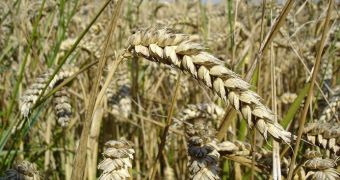One of the hallmarks of capitalism is something proponents like to call a “free market.” Basically, this means that the market regulates itself based on supply and demand, and this approach to conducting business is usually cited as the most appropriate for most cases. However, it is extremely unfair, especially when applied in countries that do not have the economy to support it. This is what happens in African nations, where free markets and the privatization of some state-owned utilities have led to the exacerbation of starvation and food shortages, a new scientific study has found out.
A number of reforms were set into motion in the 1980s, under various national and international programs. “Many of these reforms were designed to make countries more efficient, and seen as a solution to failing schools, hospitals and other infrastructure. But they sometimes eliminated critical support systems for poor farmers who had no car, no land security, made $1 a day and had their life savings of $600 hidden under a mattress,” Oregon State University Associate Professor of Geosciences Laurence Becker explains.
The very measures that were supposed to help the people in the poorest nations on Earth in fact backfired over the years, and led to a much more disastrous situation than the one they were meant to solve. Numerous food riots broke out over the past few years in some of these countries, and there seems to be no end in sight to these problems. “These people were […] asked to compete with some of the most efficient agricultural systems in the world, and they simply couldn't do it. With tariff barriers removed, less expensive imported food flooded into countries, some of which at one point were nearly self-sufficient in agriculture. Many people quit farming and abandoned systems that had worked in their cultures for centuries,” Becker says.
The expert also highlights that the developed world, and interest groups such as the World Bank or the International Monetary Fund, need to understand a very simple matter, but that, for some reason, has been eluding them for years. Whatever measures you apply need to be custom-tailored to a specific region. You cannot go about implementing free markets in extremely poor nations, thus allowing the European Union and other countries to dump their excess products in Africa, at prices that further increase unemployment rates, and throw these nations deep into starvation and dependency.
“We have to understand these are often people with little formal education, no extension systems or bank accounts, often no cars or roads. They can farm land and provide both food and jobs in their countries, but sometimes they need a little help, in forms that will work for them. Some good seeds, good advice, a little fertilizer, a local market for their products,” the expert adds. “A truly free market does not exist in this world. We don't have one, but we tell hungry people in Africa that they are supposed to,” Becker shares.
He explains that African farmers left without any help from their respective governments need to compete against farmers in Europe, the US and Asia that receive subsidies from their respective authorities. At the same time, the same people that pay their own farmers to grow crops tell Africa that it shouldn't do the same, and orient itself towards achieving a free market. To top that, they shove multinational corporations and complicated trade systems down the throat of African farmers, as if they were purposefully seeking to keep the First Continent subservient, and dependable.

 14 DAY TRIAL //
14 DAY TRIAL //